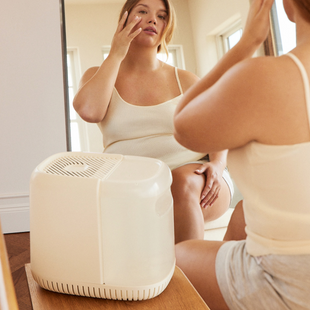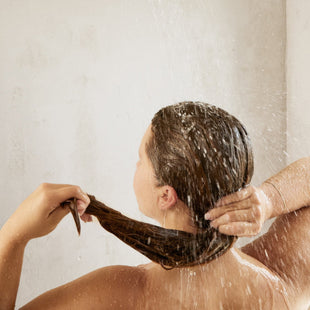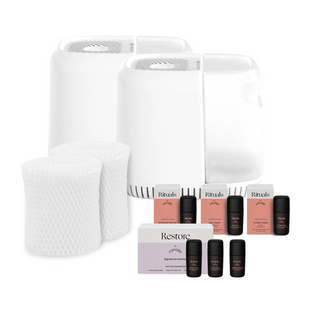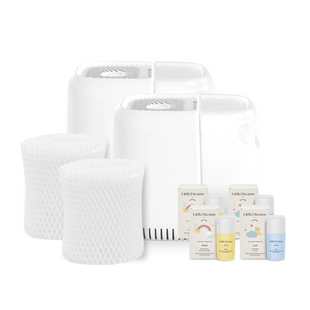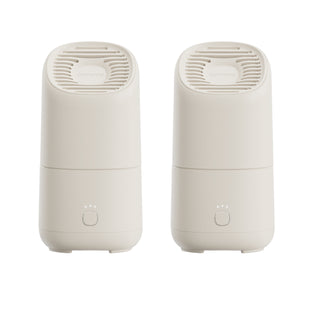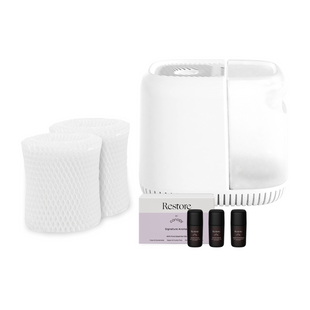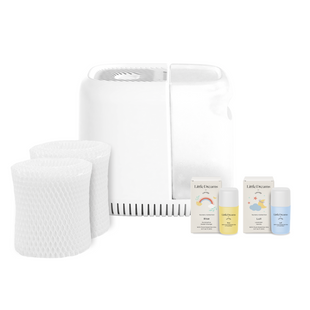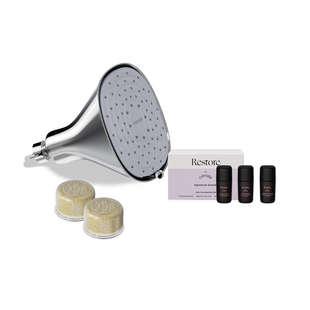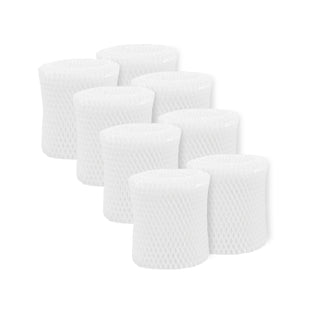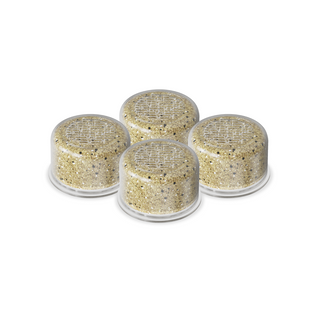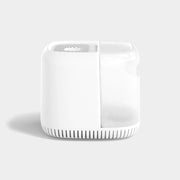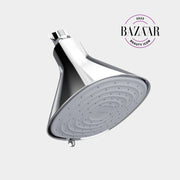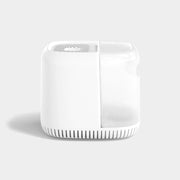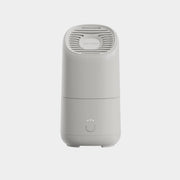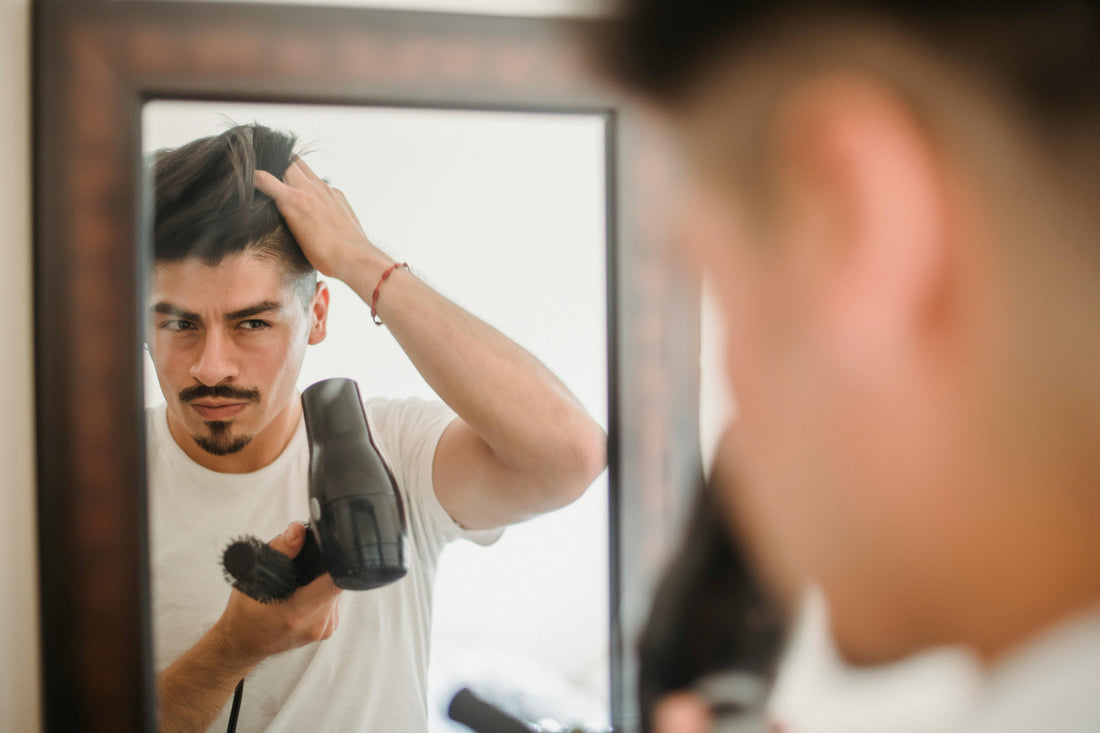Thick, healthy hair starts at the scalp. Unfortunately, we tend to put a lot of time and effort into addressing hair woes without getting to the root of the problem. If you’re washing with mineral-rich water, even the best hair care regimen will fall short.
For people with hard water, an itchy scalp and brittle hair are frustrating issues that can persist and worsen over time. Here’s everything you should know about hard water and scalp health.
Hard Water Buildup on Scalp: A Common Problem
Hard water has a high content of dissolved minerals like calcium, iron, and magnesium. While they’re not considered harmful to ingest, these minerals can have a noticeable impact on your skin, including your scalp.
The effects on your hair are twofold: not only does the hard water itself cause hair to become dry and brittle, but it can also hinder scalp health, preventing new hair growth from getting a strong start.
Mineral-rich water interferes with the hair washing process. It may prevent products from lathering fully, and it also creates a film that gets left behind on your scalp—not unlike the chalky deposits you may have noticed accumulating in your shower, drain, and plumbing fixtures. This accumulation sits on the scalp, which prevents it from soaking up the natural oils it needs. As a result, your oil glands can’t nourish your hair sufficiently.
In general, the signs of accumulating buildup include:
- Itchy scalp
- Dry and brittle hair
- Excessive tangling
- Breakage
How to Stop the Hard Water/Dry Scalp Cycle

The good news is that scalp and hair issues aren’t inevitable, even if you have dry hair. Here’s how you can stop the hard water/dry scalp cycle once and for all.
Choose the Right Shampoo for a Healthy Scalp
While the first step for addressing scalp issues caused by hard water is to invest in a filtered shower head, you may also need to undo some of the existing damage to restore scalp health. For instance, if you can feel buildup on your scalp or your roots never seem to get fully clean, a clarifying shampoo can eliminate the leftover minerals in your hair. Look for a product with sodium laureth sulfate, a cleanser designed to effectively remove residue.
Once your scalp is buildup-free, you can continue to nourish it with the right shampoo. It may take some trial and error to find the right formula, as you’ll need to see what your newly clarified skin responds to best.
Everyone has unique skin and hair types: curly hair may require more of a moisturizing formula, whereas fine hair can often benefit from lighter products. In general, shampoos with hydrating ingredients, like coconut oil, tea tree oil, and aloe vera, can help promote scalp health for most hair types.
To continue keeping buildup at bay, maintain a regular wash schedule and avoid using too much product at your roots. While dry shampoo can help minimize grease between washes, eventually, it can accumulate and create residue at the scalp. Like finding the right shampoo, determining the best cadence for washes can take some time. People with dryer scalps and hair types can often go longer between washes—think once or twice a week—while finer, oily hair may need to be washed every other day.
Use a Filtered Shower Head for Scalp Health
The only way to put a stop to scalp dryness caused by hard water is by eliminating the root cause: the high mineral content in your water. The simplest solution is investing in a filtered shower head. These devices can be installed to your existing plumbing with a few simple tools and act as a true game-changer for your beauty routine.
The Canopy Filtered Showerhead uses granular activated carbon to eliminate the heavy metals and other contaminants that take their toll on your scalp. The result is stronger, smoother hair that retains its luster, along with a healthy scalp free of irritation.

